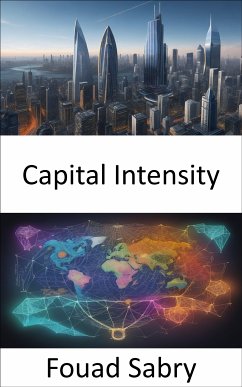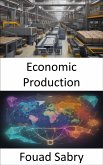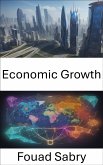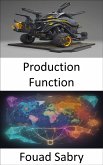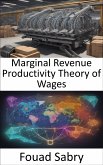What is Capital Intensity
A measure of the quantity of fixed or real capital that is present in relation to other components of production, particularly labor, is referred to as capital intensity. The capital to labor ratio, which can be derived from the points along a capital/labor isoquant, can be used to estimate it at the level of either a production process or the economy as a whole.
How you will benefit
(I) Insights, and validations about the following topics:
Chapter 1: Capital intensity
Chapter 2: Macroeconomics
Chapter 3: Economic growth
Chapter 4: Growth accounting
Chapter 5: Production function
Chapter 6: Productivity
Chapter 7: Accelerator effect
Chapter 8: Organic composition of capital
Chapter 9: Output (economics)
Chapter 10: Labor intensity
Chapter 11: Solow residual
Chapter 12: Total factor productivity
Chapter 13: Solow-Swan model
Chapter 14: Productivity paradox
Chapter 15: Workforce productivity
Chapter 16: Domar aggregation
Chapter 17: Dale W. Jorgenson
Chapter 18: Production (economics)
Chapter 19: Fei-Ranis model of economic growth
Chapter 20: Cambridge capital controversy
Chapter 21: Surplus value
(II) Answering the public top questions about capital intensity.
(III) Real world examples for the usage of capital intensity in many fields.
Who this book is for
Professionals, undergraduate and graduate students, enthusiasts, hobbyists, and those who want to go beyond basic knowledge or information for any kind of Capital Intensity.
A measure of the quantity of fixed or real capital that is present in relation to other components of production, particularly labor, is referred to as capital intensity. The capital to labor ratio, which can be derived from the points along a capital/labor isoquant, can be used to estimate it at the level of either a production process or the economy as a whole.
How you will benefit
(I) Insights, and validations about the following topics:
Chapter 1: Capital intensity
Chapter 2: Macroeconomics
Chapter 3: Economic growth
Chapter 4: Growth accounting
Chapter 5: Production function
Chapter 6: Productivity
Chapter 7: Accelerator effect
Chapter 8: Organic composition of capital
Chapter 9: Output (economics)
Chapter 10: Labor intensity
Chapter 11: Solow residual
Chapter 12: Total factor productivity
Chapter 13: Solow-Swan model
Chapter 14: Productivity paradox
Chapter 15: Workforce productivity
Chapter 16: Domar aggregation
Chapter 17: Dale W. Jorgenson
Chapter 18: Production (economics)
Chapter 19: Fei-Ranis model of economic growth
Chapter 20: Cambridge capital controversy
Chapter 21: Surplus value
(II) Answering the public top questions about capital intensity.
(III) Real world examples for the usage of capital intensity in many fields.
Who this book is for
Professionals, undergraduate and graduate students, enthusiasts, hobbyists, and those who want to go beyond basic knowledge or information for any kind of Capital Intensity.
Dieser Download kann aus rechtlichen Gründen nur mit Rechnungsadresse in A, B, BG, CY, CZ, D, DK, EW, E, FIN, F, GR, H, IRL, I, LT, L, LR, M, NL, PL, P, R, S, SLO, SK ausgeliefert werden.

